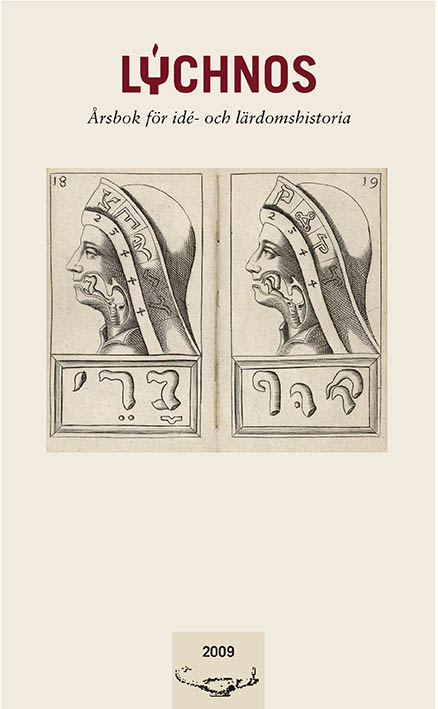The power of the word
On the magical power of language in Renaissance philosophy
Abstract
This article reassesses the idea of language as a vehicle of magical powers in early modern European philosophy. In traditional anthropology, notions of word magic have often been seen as an expression of a ”primitive” or ”pre-logical” mentality, characterized by an inability to properly recognize the distinction between word and object. This view, originally stemming from the colonial anthropology of Edward Tylor and James Frazer, has had considerable influence on modern historigraphy and is regularly invoked in contemporary discussions of Renaissance scholars like Marsilio Ficino and Cornelius Agrippa. According to a common argument, this ”mentality” informed the Renaissance reading of Plato’s dialogue Cratylus, in which language was claimed to ”mirror” or ”imitate” physical reality, a theory that was supposedly reinterpreted or misunderstood by many Renaissance scholars as implying a causal connection between words and objects.
Yet few attempts have been made to analyze in detail how the Cratylus was read in the Renaissance and to what extent it actually underpinned ideas of magical languages. This essay suggests that the scholarly debate about the power of words was, in fact, far more complex. Though Cratylus was a common reference in these discussions, it was by no means the only source and interpretations of it differed radically between different scholars. Even the prime ”Platonist” of the Renaissance, Marsilio Ficino, drew on a wide variety of sources when arguing for the magical power of words, ranging from Origen, Jewish kabbalah and Plotinus to medieval philo- sophers like al-Kindi and Roger Bacon.
Like many early modern scholars, Ficino adhered to the idea of a philosophia perennis, an ancient wisdom that was believed to be more or less accurately reflected in all ancient sources. This belief fostered a syncretistic approach to textual interpretation, implying that conflicting philosophical accounts could be read as reconcilable and congruent. The idea of an ancient wisdom was shared by many early modern scholars, but depending on how this narrative was construed, scholars could interpret identical sources in a variety of ways. By comparing a number of well- known scholars, this article shows that the magical power of words could be legitimized in quite different terms. In no case, however, was the belief in word magic rooted in a mere inability to properly distinuish between words and things. Instead, the philosophical basis can most often be found in the Christian notion of God’s Word as the creative principle of the universe, which was simultaneously reflected in the soul of man. This commonplace notion made it possible to conceptualize human language as a reflection of God’s Word: as an imago Dei, created ”in the image and likeness of God”, man could act as an instrument or a vehicle of God’s creative power, and litterally give voice to His power by means of human words.
Downloads
Published
Issue
Section
License
This work is licensed under a Creative Commons Attribution 4.0 International License. The copyright for the work published in Lychnos remains with the authors.


